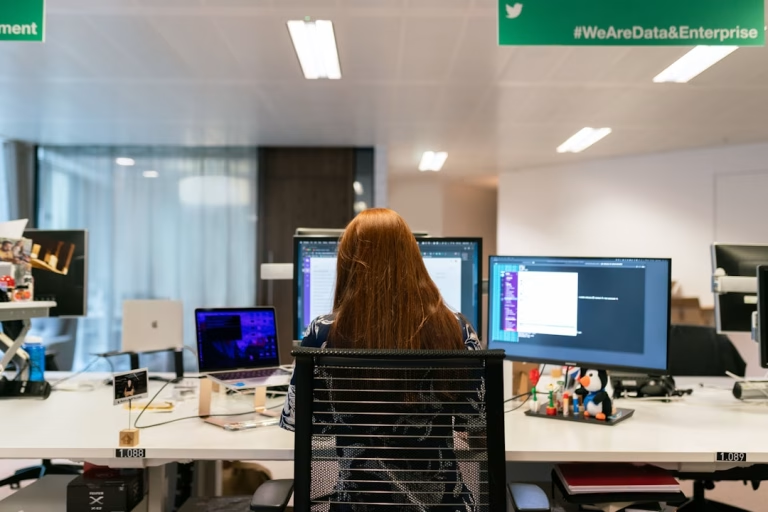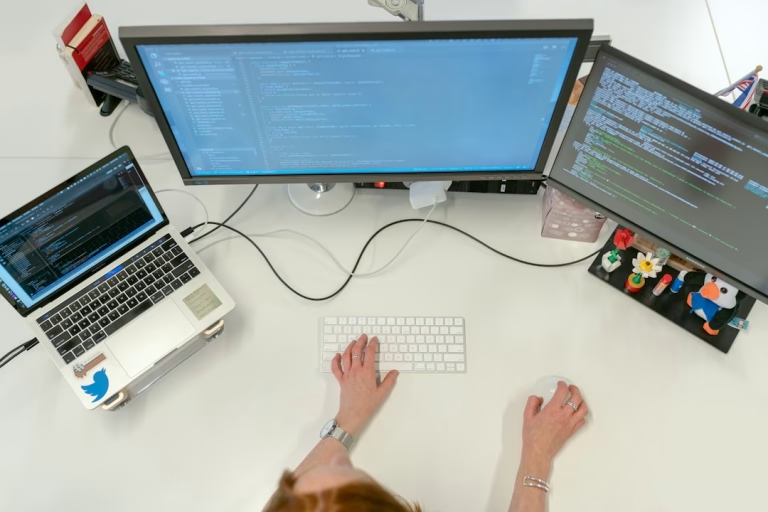Using Accounting Software to Streamline Business Finances: A Case Study
Running a business is no small feat, especially when it comes to managing finances. I’ve been there, wrestling with spreadsheets late at night, trying to make sense of numbers that just didn’t seem to add up. It wasn’t until I switched to accounting software that I realized how much time and sanity I was losing in the process. If you’re a business owner or thinking about becoming one, let me tell you a little story about how using accounting software changed the game for my business.
The Spreadsheet Struggle
Let’s rewind a bit. A few years ago, I started a small online store selling handmade crafts. Initially, managing the finances wasn’t too complicated—just a few sales here and there. But as the business grew, so did the pile of receipts, invoices, and expenses. I remember sitting in my home office, surrounded by papers, trying to keep track of everything with a combination of Excel spreadsheets and a good old-fashioned calculator. It was a nightmare.
If you’ve ever tried doing your business accounting manually, you know what I’m talking about. It felt like I was constantly playing catch-up, and I couldn’t shake the feeling that I was missing something crucial. And let’s not even talk about tax season—that was a whole other level of stress. I knew there had to be a better way, so I started looking into accounting software.
Finding the Right Tool
Now, I’m not going to pretend that switching to accounting software was a smooth transition. I had my doubts. I wasn’t sure if I needed something so advanced for my “little” business. But after talking to a few fellow entrepreneurs, I decided to give it a try. I settled on a popular accounting software that seemed user-friendly and had good reviews.
One thing I learned quickly was that not all accounting software is created equal. Some are packed with features that I didn’t need, while others were too basic. It’s important to find one that fits your specific needs. For me, it was crucial to have something that could handle invoicing, expense tracking, and generate financial reports with minimal effort on my part. I didn’t need anything too flashy—just something that could help me stay on top of things.
A Game Changer for My Business
Once I got the hang of it, I was amazed at how much time I saved. The software automatically categorized my expenses, tracked my income, and even sent out invoices on my behalf. It was like having a personal assistant who knew everything about my finances. One of the biggest advantages, though, was the reporting feature. I could generate profit and loss statements, balance sheets, and cash flow reports with just a few clicks. This made it so much easier to understand where my business stood financially at any given moment.
Another big win was during tax season. The software kept all my financial records organized throughout the year, so when it came time to file my taxes, everything was already in order. No more scrambling to find receipts or worrying about missing deductions. I actually had more time to focus on growing my business instead of being bogged down by the numbers.
Real-Life Examples: Why Accounting Software Matters
Let’s talk about some real-life examples. I have a friend, Sarah, who runs a small bakery. Like me, she started off using spreadsheets to track her sales and expenses. But as her business grew, she found herself spending more time managing her books than baking. After switching to accounting software, she was able to cut down the time spent on bookkeeping by half. She could finally focus on creating new recipes and expanding her business.
Another example is my cousin, Mark, who runs a freelance graphic design business. Before using accounting software, he struggled to keep track of client payments and often forgot to send invoices. This led to cash flow issues, and he was constantly chasing down clients for payments. Once he started using accounting software, it was a game changer. The software automatically sent out invoices and tracked payments, so he always knew where he stood financially. This helped him manage his cash flow better and gave him more time to focus on his creative work.
The Benefits Backed by Research
The benefits of using accounting software aren’t just anecdotal—they’re backed by research. According to a study by Intuit, businesses that use accounting software save an average of 10 hours a week on financial tasks. That’s 10 hours you could be spending on growing your business, connecting with customers, or even just taking a well-deserved break. Additionally, the study found that businesses using accounting software were more likely to have accurate financial records, which is crucial for making informed business decisions .
Another study by the Journal of Accountancy highlighted that businesses using accounting software were more likely to stay compliant with tax regulations. This is because the software helps ensure that all necessary records are kept and that all transactions are properly categorized. This reduces the risk of errors that could lead to costly penalties down the line .
Making the Switch: My Advice
If you’re still on the fence about switching to accounting software, my advice is simple: give it a try. Start with a basic version and see how it works for your business. You might be surprised at how much easier it makes your life. Remember, the goal is to free up your time so you can focus on what you do best—running your business.
And if you’re worried about the cost, think of it as an investment. The time you save and the accuracy you gain will more than make up for the monthly fee. Plus, many software providers offer free trials, so you can test the waters before committing.
Conclusion
Switching to accounting software was one of the best decisions I made for my business. It took the stress out of managing finances and gave me back valuable time that I could invest in growing my business. If you’re still doing your accounting the old-fashioned way, consider making the switch. Your future self will thank you.
Whether you’re running a small business or just starting out, using accounting software can streamline your finances and help you stay on top of things. It’s like having a financial expert in your back pocket—one that works 24/7, doesn’t take coffee breaks, and never complains about overtime. Trust me, once you make the switch, you’ll wonder how you ever managed without it.






